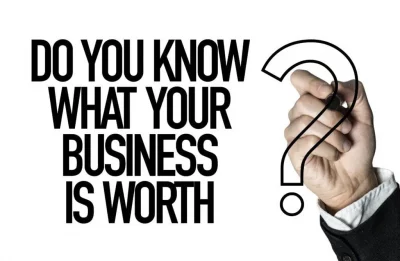For many small business owners, their business isn’t just a source of income; it’s their biggest investment, often meant to support their retirement. But figuring out exactly how much your business is worth and what makes it more valuable than others can be pretty tricky.
When it comes time to sell your business, the first thing you need to know is what exactly you’re selling. Typically, it’s your physical assets like equipment and inventory, along with the goodwill your business has built up. Buyers usually aren’t interested in taking on your debts or your company structure, so most sales end up being just for the assets.
The value of your assets is usually pretty straightforward to figure out, except for goodwill. Goodwill is the value of the future profits your business is expected to make. It’s essentially how much a buyer is willing to pay based on the business’s potential to make money down the road.
When someone buying a business can predict future profits and cash flow, that’s a good sign. But startups are riskier because they might not make profits right away. It often takes them years to start making money. “Goodwill” is the extra money paid to reduce risk and the time it takes to build up the business.
So, what makes a business valuable, and why would someone want to buy it?
- Making consistent profits and showing potential for even more
- Offering a high return on investment, ideally over 30%
- Showing strong growth and having good prospects for more growth
- Having a recognizable brand name that adds value
- Being able to run without relying too heavily on the owner
- Having a solid base of loyal customers
- Having a sort of monopoly in your market, where you’re the only game in town
- Having a competitive edge that’s hard for others to copy
- Having good systems and processes in place to keep things running smoothly
While these factors play a big role, the actual price of a business can vary a lot. Sometimes, unique businesses or special circumstances can lead to higher prices. If your business does something really special, you might be able to get a price that’s higher than usual. But ultimately, it’s the market that decides what your business is worth. Even if you’re not thinking about selling your business right now, it’s still important to think about its value. Someday, you’ll probably want to sell, so it’s smart to do things that increase its value over time. And if you do decide to sell, think about who might want to buy it. You might find a buyer who’s willing to pay top dollar because your business would be a great addition to their plans for growth.
Should you please have any question in regards to above, please feel free to contact our friendly team in Pitt Martin Tax at 0292213345 or info@pittmartingroup.com.au.
The material and contents provided in this publication are informative in nature only. It is not intended to be advice and you should not act specifically on the basis of this information alone. If expert assistance is required, professional advice should be obtained.
By Yvonne Shao @ Pitt Martin Tax

